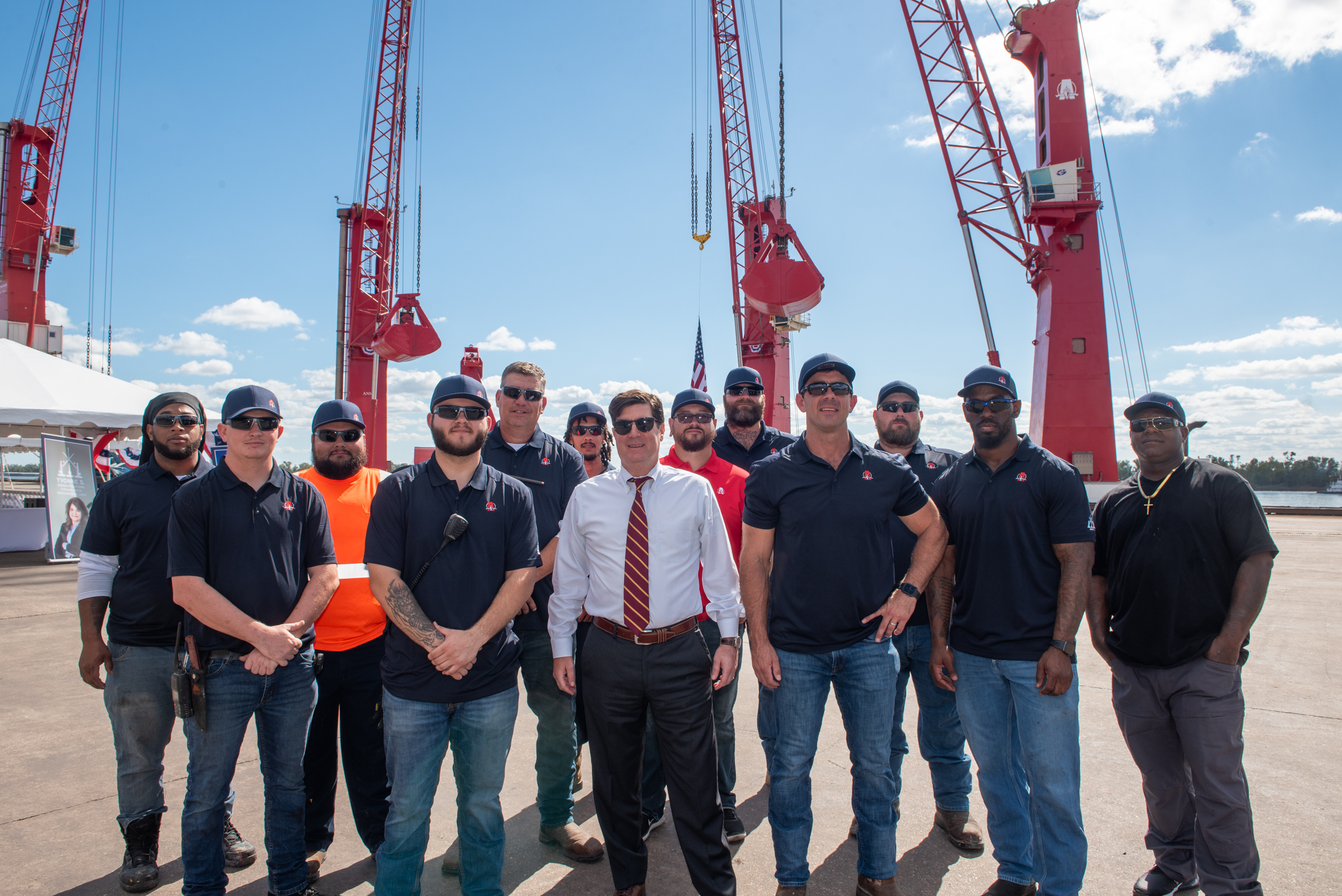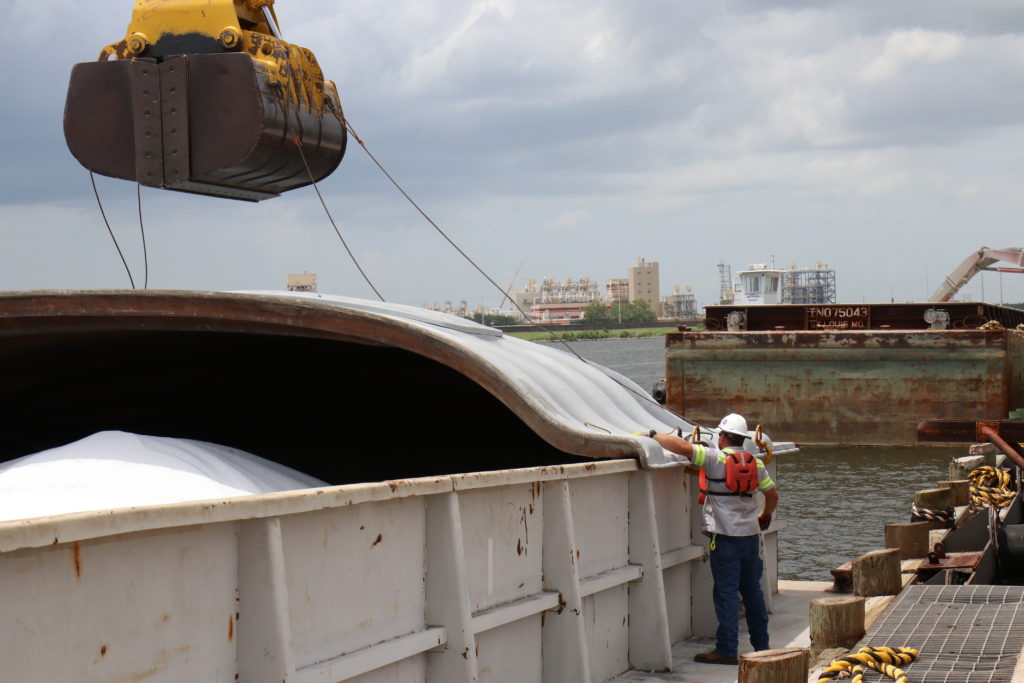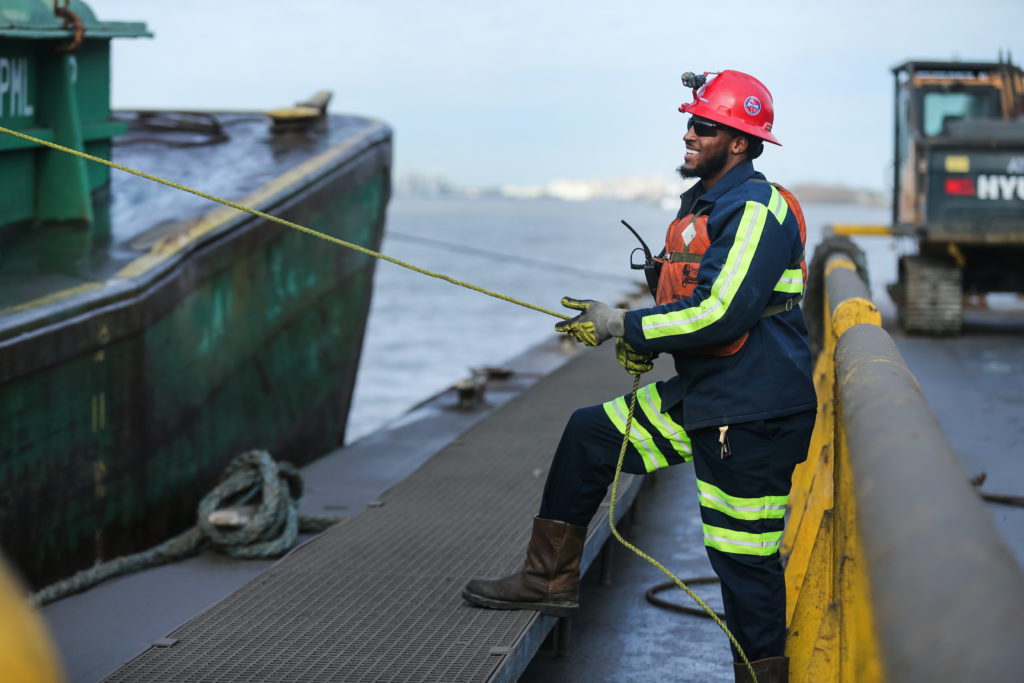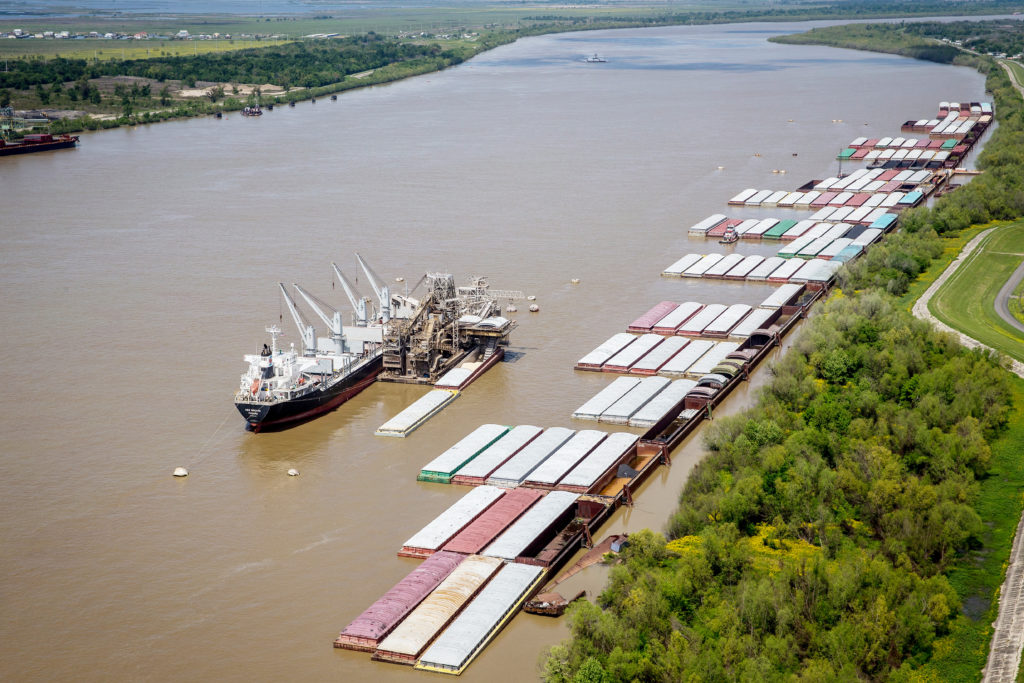

Maritime transport is the backbone of global trade and the global economy. The international shipping industry is responsible for the transport of approximately 90% of world trade. Without shipping, the bulk transport of raw materials, and the import/export of affordable food and manufactured goods would not be possible.

No country is entirely self-sufficient, and every country relies on maritime trade to import and export goods. Much of what we use and consume in our everyday lives either has been or will be transported by sea, in the form of raw materials, components or finished articles. Over 10.7 billion tons of cargo is imported and exported annually via ocean vessels worldwide.
There are over 55,000 merchant ships trading internationally, transporting every kind of cargo. The world fleet is registered in over 150 nations and manned by almost 1.5 million seafarers of virtually every nationality.
To learn about some fun facts and figures about our industry, click below:
Stevedoring is the process of loading or offloading cargo to and from a ship.
The stevedore’s job involves more than labor. It is skilled work that requires operation of loading equipment, proper packing and unpacking techniques for cargo, and the correct handling of hazardous materials. Linesman, crane operators, forklift drivers and tally clerks would all come under the broad umbrella of stevedores.
Historically, rivers have been the highways of the world. To get cargo to and from the ship, different modes of transportation are used including barge, rail and truck. Although there are many competing modes for transporting goods available today, barges still do a lot of work. There are about 30,000 barges on U.S. waterways.
Today, barges carry heavy or bulky items that would be difficult to transport any other way. Some typical items you might find on barges include coal, grain, oil, chemicals, trash, recyclable materials, sand, gravel, timber, iron ore and other minerals.


The Mississippi River is America’s main artery of commerce extending 2,350 miles from Minnesota to the Gulf of Mexico.
Commerce greatly added to the Mississippi River Valley’s early growth and played a critical role in shaping the modern United States. The five ports on the Lower Mississippi River comprise the largest port complex in the world. More than 500 million tons of cargo are handled by ports on the Lower Mississippi River annually.
Louisiana is a maritime state and its ports impact every parish. Ports connect and enhance major industries, such as oil and gas, agriculture and petrochemical, along with manufacturers to reach global markets. In turn, ports enhance Louisiana’s economy, with more than $182 billion in economic output. Louisiana ports create 525,000 jobs, or one-in-five jobs in the state. Louisiana Department of Transportation and Development and Louisiana Economic Development determined for every $1 invested in port infrastructure, $8 is returned to Louisiana coffers.